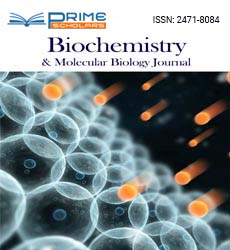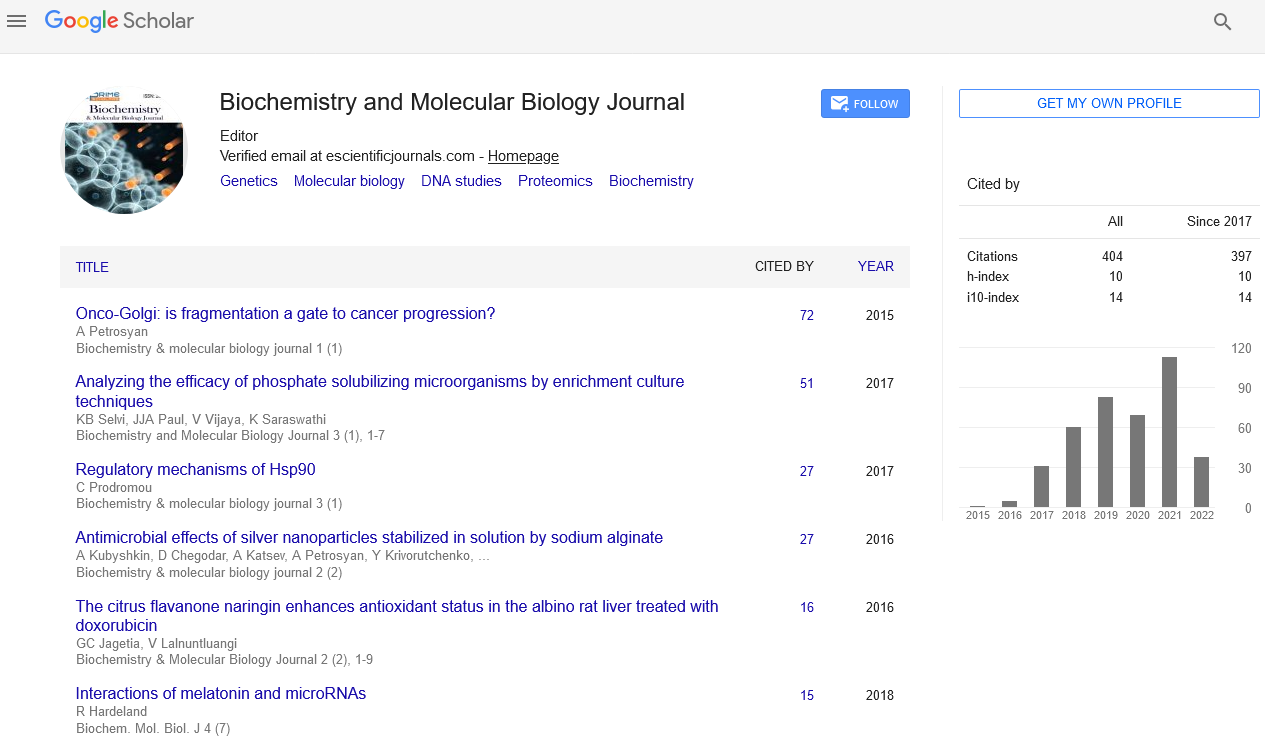Perspective - (2024) Volume 10, Issue 3
Decoding the Process: Mitochondrial Protein Synthesis and Its Crucial Role in Cellular Function
Gen Don*
Department of Biology, College of Peru, Peru
*Correspondence:
Gen Don,
Department of Biology, College of Peru,
Peru,
Email:
Received: 29-May-2024, Manuscript No. IPBMBJ-24-20965;
Editor assigned: 31-May-2024, Pre QC No. IPBMBJ-24-20965 (PQ);
Reviewed: 14-Jun-2024, QC No. IPBMBJ-24-20965;
Revised: 19-Jun-2024, Manuscript No. IPBMBJ-24-20965 (R);
Published:
26-Jun-2024, DOI: 10.36648/2471-8084-10.03.24
Introduction
Mitochondria, often referred to as the powerhouses of the cell, are
integral to energy production and various other cellular functions.
One of their critical roles involves the synthesis of proteins that
are essential for mitochondrial function. Mitochondrial protein
synthesis is a complex process that highlights the unique interplay
between the mitochondrion’s own genetic material and the
nuclear genome, and understanding this process provides valuable
insights into cellular energy metabolism, the maintenance of
mitochondrial function, and the implications for human health.
Mitochondrial protein synthesis occurs within the mitochondrial
matrix, where ribosomes that are distinct from their cytoplasmic
counterparts translate the mitochondrial mRNA.
Description
The mitochondrial ribosomes (mitoribosomes) resemble bacterial
ribosomes more than eukaryotic cytoplasmic ribosomes,
reflecting their prokaryotic ancestry. The process begins with
the transcription of mtDNA into polycistronic mRNA molecules,
which are then processed into individual mRNAs, tRNAs, and
rRNAs. Initiation of mitochondrial protein synthesis requires
the formation of a translation initiation complex, involving the
small mitoribosomal subunit, mitochondrial initiation factors,
and the mRNA. This process is similar to bacterial translation
but involves unique mitochondrial-specific factors. Once the
initiation complex is formed, the large mitoribosomal subunit
joins to create a functional ribosome ready for elongation. The
accuracy and efficiency of this process are crucial, as errors can
lead to dysfunctional proteins and compromised mitochondrial
function. Termination of mitochondrial protein synthesis occurs
when a stop codon on the mRNA is reached. Mitochondrial release
factors recognize these stop codons and promote the release
of the newly synthesized polypeptide from the ribosome. The
newly synthesized mitochondrial proteins must then be correctly
folded and assembled into functional complexes within the inner
mitochondrial membrane. Molecular chaperones and proteases
within the mitochondria assist in this process, ensuring proper
protein folding and preventing the accumulation of misfolded
proteins. The coordination between mitochondrial and nuclearencoded
proteins is vital for the assembly and function of the
ETC and ATP synthase complexes. Dysregulation of mitochondrial
protein synthesis can lead to a variety of diseases, collectively
known as mitochondrial disorders. These disorders can result from
mutations in mtDNA or nuclear genes encoding mitochondrial
proteins, tRNAs, or factors involved in mitochondrial translation.
Given the central role of mitochondria in energy production,
such disorders often affect tissues with high energy demands,
such as the brain, heart, and muscles. Symptoms can range from
muscle weakness and neurodegenerative conditions to more
severe metabolic syndromes. Recent advances in understanding
mitochondrial protein synthesis have opened new avenues for
potential therapies. Gene therapy approaches aim to correct or
replace defective genes involved in mitochondrial translation.
For instance, delivering healthy copies of nuclear genes encoding
mitochondrial proteins or translation factors can restore proper
mitochondrial function. Additionally, small molecules that
stabilize mitochondrial protein synthesis machinery or enhance its
efficiency are being explored as therapeutic agents.
Conclusion
In conclusion, mitochondrial protein synthesis is a finely tuned
and essential process for cellular energy production and overall
mitochondrial function. Understanding the intricacies of this
process sheds light on the delicate balance between mitochondrial
and nuclear genomes and their coordinated regulation. Continued
research in this field holds promise for developing innovative
therapies for mitochondrial disorders, potentially transforming
the treatment landscape for these debilitating conditions. As
we delve deeper into the mechanisms of mitochondrial protein
synthesis, we gain crucial insights into cellular metabolism and the
fundamental processes that sustain life.
Citation: Don G (2024) Decoding the Process: Mitochondrial Protein Synthesis and its Crucial Role in Cellular Function. Biochem Mol Biol J. 10:24.
Copyright: © 2024 Don G. This is an open-access article distributed under the terms of the Creative Commons Attribution License, which permits unrestricted use, distribution, and reproduction in any medium, provided the original author and source are credited.

